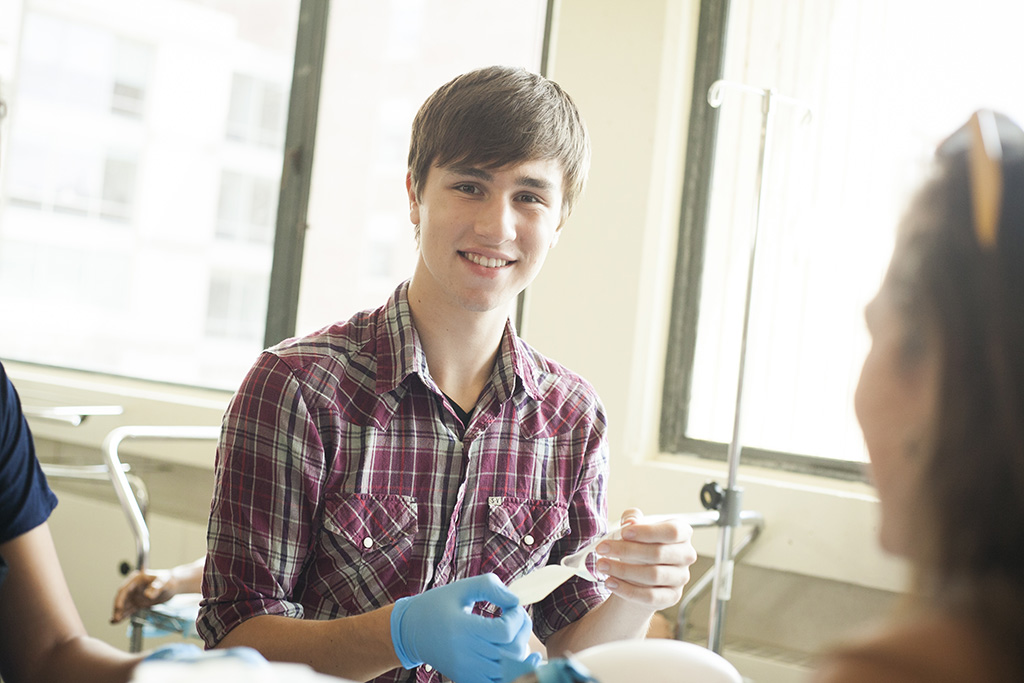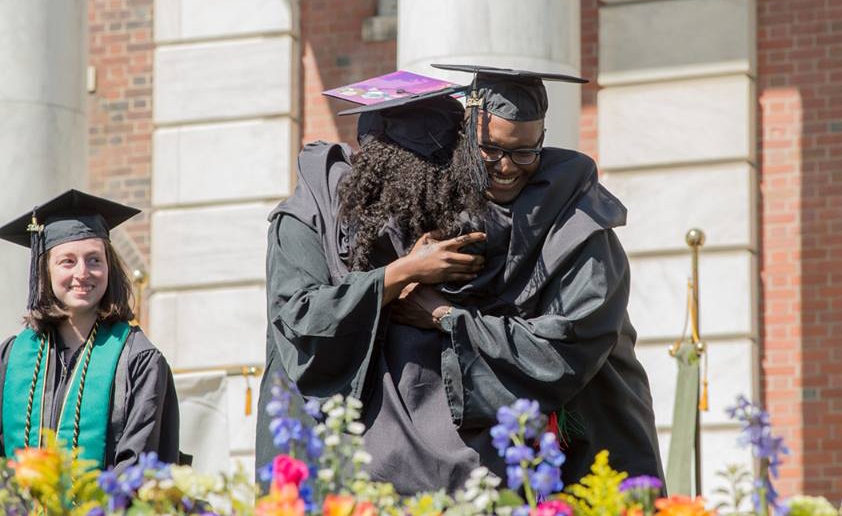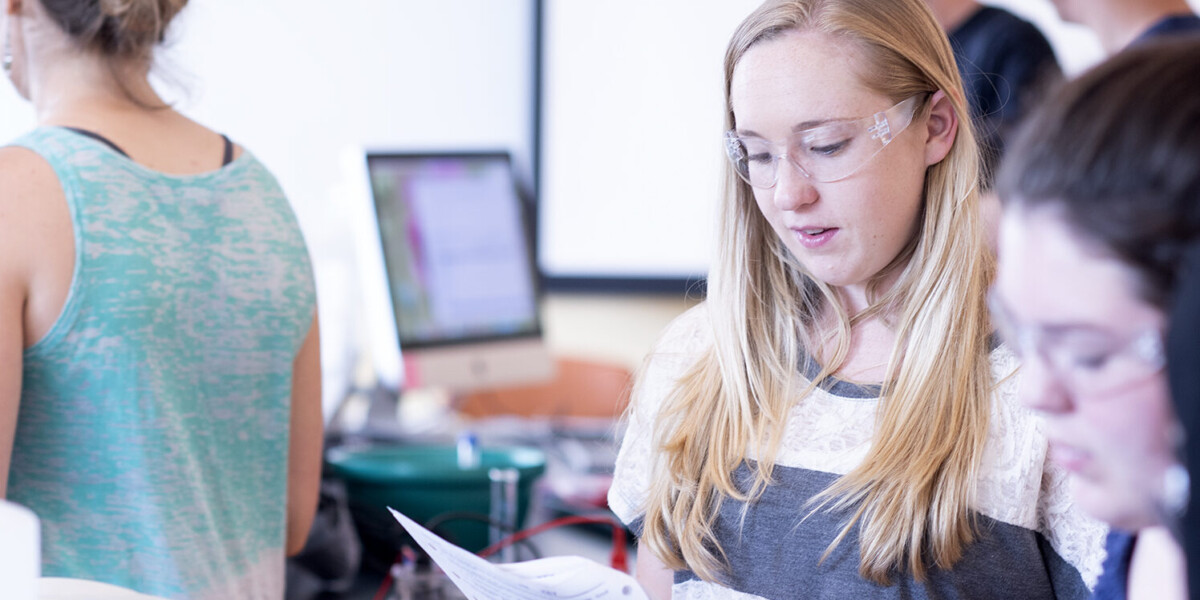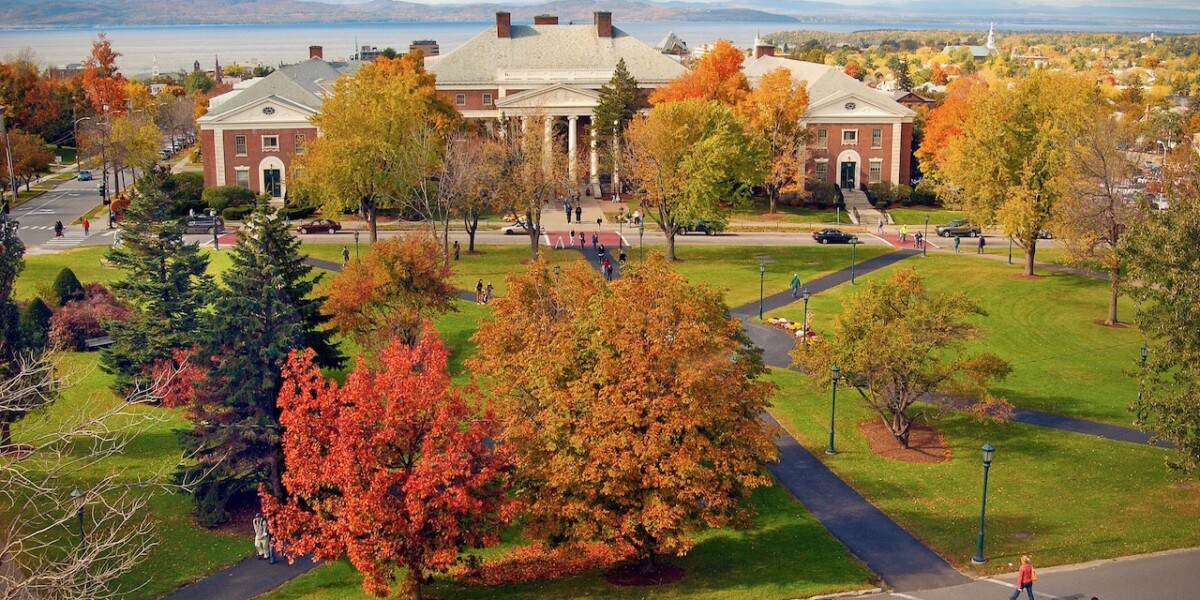The brain is the human body’s most complex organ. Weighing about 3 pounds in adulthood and consisting of billions of tiny cells, the brain—the central organ of our nervous system— holds the secrets to our personality, use of language, memories, and the way our body operates.
In July, UVM Associate Professor Alicia Ebert will teach Summer Academy’s Adventures in Neuroscience course to high school students.
The new course, which runs July 7 to Aug. 2, 2019, will introduce students to the dynamic and diverse field of neuroscience—the study of the nervous system, which includes the brain and the spinal cord. The field of neuroscience not only focuses on how the nervous system works under normal circumstances, but also how it functions in an individual suffering from neurological, neurodevelopmental, and psychiatric disorders.

In Ebert’s course, students will learn the basics of cellular, molecular, and behavioral neuroscience, and gain hands-on experience in a lab performing experiments to ask basic neurobiology questions. There will also be lab and facility tours to explore the breadth and depth of the field of neuroscience.
“We will spend time talking about the history of neuroscience, the foundational research that sparked the field, then touch on different types of neuroscience research,” she says. “With the lab tours and research experience, it should be a great entry into this field.”
The course is part of UVM’s Summer Academy, a four-week residential and online program offered to high school juniors and seniors who want to explore areas of study and earn transferable college credit.
Ebert, who began teaching at UVM in 2012, completed her undergraduate degree in molecular biology at the University of Wyoming, and earned her Ph.D. in Developmental Neuroscience at Colorado State University.
While growing up in Colorado, her high school genetics teacher inspired Ebert to major in molecular biology and eventually start on a career path toward neuroscience. “Mating fruit flies and performing crosses and genetic screens was amazing to me at the time and I wanted to know more,” she says.
Ebert became specifically interested in neuroscience as an undergraduate student at the University of Wyoming when she was a technician in a neuroscience lab that focused on nerve regeneration using mice.
Ebert’s current research focuses on zebrafish eye development. The eyes develop from forebrain tissues and then must migrate bilaterally to take up their final position on either side of the head.
She is interested in what mechanisms and molecules are involved in maintaining eye tissue cohesion as they undergo elegant movements of morphogenesis and migration. The lab is also interested in how the different neurons in the developing retina develop the appropriate characteristics and in the correct location.
“All of my research uses zebrafish as a model to understand the genes and pathways that are important in setting up the nervous system,” she says. “We predominantly focus on development of the eye, ear, and motor, and sensory systems. Summer Academy students will have an opportunity to observe and manipulate zebrafish embryos.”
Ebert is passionate about her subject matter and committed to keeping her courses informative and fun.
“I love teaching the content that I am excited about to students that are just as excited to learn,” she says. “The energy in my classes is infectious and makes for a fun learning environment.”
Register for Adventures in Neuroscience at UVM




